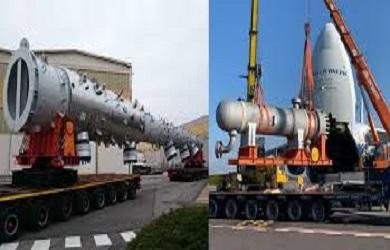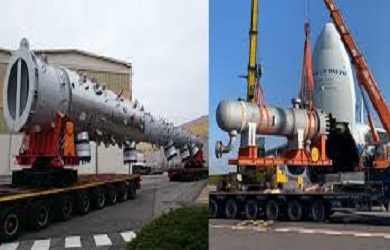Japan heat exchangers market is projected to witness a CAGR of 4.90% during the forecast period FY2025-FY2032, growing from USD 1.30 billion in FY2024 to USD 1.90 billion in FY2032. The heat exchangers market in Japan is experiencing growth due to the developments in renewable energy and HVAC sectors. The rise of regulatory pressure for the adoption of energy-efficient equipment in the industrial sector is fueling the demand for heat exchangers. Furthermore, technological advancements in the design of heat exchangers will create opportunities for market growth in the forecasted years.
Japanese companies are increasingly adopting eco-friendly technologies to meet regulatory standards, and heat exchangers are essential in this transaction. Furthermore, Japan’s goal to lower greenhouse gas emissions and move to a low-carbon economy aligns with heat exchanger technology. Government initiatives that support renewable energy projects are driving demand for energy-efficient products in the market. This emphasis on sustainability promotes the adoption of heat exchangers and contributes to growth in the HVAC sector due to rising temperatures in Japan. As heat exchangers are essential components of HVAC systems, this trend is expected to accelerate market expansion further.
For instance, in April 2023, Toshiba Carrier Corporation expanded its Heatcle Air total heat exchanger with the addition of nine new models. This model will support improved energy efficiency and will boost overall demand for heat exchangers. The development will help the company to increase revenue in the coming years.
Renewable Energy Initiatives to Drive Market Expansion
The growing demand for the renewable energy sector is a driving force towards the expansion of heat exchangers market in Japan. The government has shifted its focus to boost the use of renewable energy technologies and reducing the reliance on fossil fuels. To support this, the government set a goal for renewables to contribute about 36-38% of electricity generation by 2030, leading to increased investment in solar, wind, and geothermal projects that will boost the demand for heat exchangers for effective thermal management systems.
Moreover, Japan emphasizes moving toward a low-carbon economy with an increased focus on energy efficiency across all sectors. Heat exchangers play an essential role in achieving this objective by improving thermal management in industrial processes, minimizing waste, and reducing operational costs.
For instance, in October 2024, Conflux Technology raised USD 11 million in series B funding aimed at assisting innovative companies in achieving net-zero emissions through advanced heat exchange technologies. The company will utilize the funds to enhance its heat exchange solutions, which are designed to optimize energy efficiency and reduce carbon footprints in various industries.
Growing Demand for HVAC Systems to Accelerate Market Size
Japan is experiencing a notable rise in average temperatures, mainly due to climate change, which has led to an increase in the demand for efficient HVAC systems. The surge in demand for HVAC systems has resulted in the rise of heat exchanger installations, which are essential for optimizing energy and improving climate control in residential and commercial environments. Moreover, advancements in heat exchanger technology, especially in microchannel and plate designs, are improving the performance and energy efficiency of the equipment by at least 30%. Real-time monitoring and optimization of energy consumption is enabled by the integration of smart technologies, which further propels market growth.
For example, in November 2023, Mitsubishi Electric developed an aluminum vertical flat tube (VFT) heat exchanger, which will increase the performance of heat pump air conditioner by 40%. This innovation will boost the adoption of heat exchangers across the HVAC sector in Japan.
Plates and Frames Heat Exchangers to be the Fastest Growing Segment
Plates and Frame Heat Exchangers have a high adoption rate, which makes the segment grow at the fastest rate. Plates and frames heat exchangers consist of a series of stacked plates that allow effective heat transfer between two fluids, making the equipment ideal for various industrial processes such as chemical industries and food processing. Plates and frames heat exchangers are favored due to their compact design and versatility. Plate heat exchangers (PHEs) are particularly well-suited for applications requiring moderate pressure and temperature conditions. This feature makes them an ideal choice for many of Japan’s residential and commercial HVAC systems, where efficient climate control is essential. Their capability to transfer heat effectively in these systems helps to optimize energy usage and lower operational costs.
Moreover, improved plate designs and materials such as stainless steel improve corrosion resistance and enhance thermal conductivity. This reduces energy losses and operational costs, which is crucial for industries meeting Japan’s stringent energy efficiency standards.
For instance, in September 2024, Mitsubishi Electric launched the EW-HT-G05 heat pump, designed to produce high-temperature water up to 78 degrees Celsius for commercial and industrial applications. This innovative heat pump is expected to significantly increase the demand for efficient heat exchangers, which are essential components in these systems. Heat exchangers facilitate effective thermal management by enabling the transfer of heat between the refrigerant and the environment.
Central Region to Leads the Japan Heat Exchangers Market Share
The central region dominates the Japan heat exchangers market and is expected to maintain its share in the forecast period. The region includes the country’s largest economic and industrial hub, housing a vast number of manufacturing plants, commercial buildings, and key industries. The region is highly urbanized, with sectors such as electronics, chemicals, automotive, and HVAC manufacturing heavily depending upon efficient heat exchanger systems to maintain energy efficiency, meet production demand, and comply with environmental regulations. The ongoing development of infrastructure in commercial and residential construction is fueling the demand for heat exchangers. Kanto regions contribute more than 45% of Japan’s total GDP, which shows a substantial share of economic activities that boost the demand for energy-intensive devices such as heat exchangers. Additionally, the region contributes to large portions of Japan’s HVAC market, which is a significant consumer of heat exchangers.
Download Free Sample Report
Future Market Scenario (FY2025 – FY2032F)
- Japanese manufacturers are investing in the development of intelligent heat exchangers equipped with sensors and data analytics capabilities. The advancements in heat exchanges facilitate proactive maintenance, reduce downtime, and enhance overall performance, which drives market demand in the forecast period.
- Regulatory measures aimed at reducing greenhouse gas emissions and enhancing energy efficiency in various sectors, including manufacturing, residential, and commercial buildings, will likely drive the adoption of advanced heat exchanger technologies.
- As industries focus on reducing energy consumption and greenhouse gas emissions, the demand for advanced heat exchangers that optimize thermal management will rise.
Report Scope
“Japan Heat Exchangers Market Assessment, Opportunities and Forecast, FY2018-FY2032F”, is a comprehensive report by Markets and Data, providing in-depth analysis and qualitative and quantitative assessment of the current state of Japan heat exchangers market, industry dynamics, and challenges. The report includes market size, segmental shares, growth trends, opportunities, and forecast between FY2025 and FY2032. Additionally, the report profiles the leading players in the industry, mentioning their respective market share, business models, competitive intelligence, etc.
ClickHere:https://www.marketsandata.com/industry-reports/japan-heat-exchangers-market
About Us:
Markets and Data provides a comprehensive/ panoramic understanding of markets at global, regional, and country levels. Examine changing consumer preferences, emerging challenges, underlying trends, and growth prospects to accelerate your business strategies.
Contact
Mr. Vivek Gupta
5741 Cleveland street,
Suite 120, VA beach, VA, USA 23462
Tel: +1 (757) 343-3258
Email: info@marketsandata.com
Website: https://www.marketsandata.com



